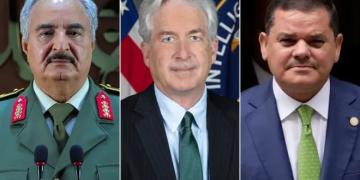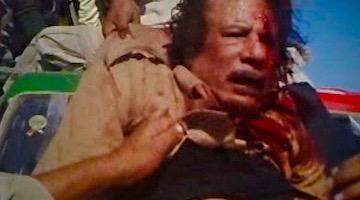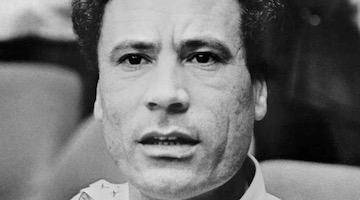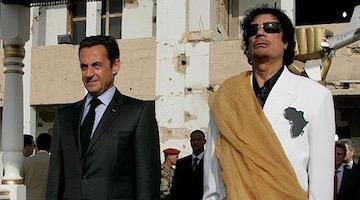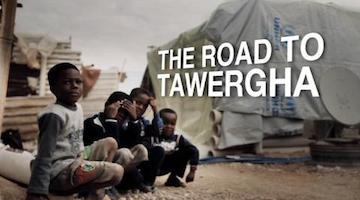Nine years after his death, residents in the chaos-wracked country's capital have grown to miss the longtime leader as the frustrations of daily life mount.
“Gaddafi ruled for 42 years, leading Libya to a significant advance in social, political and economic matters.”
Nine years after the military intervention, led by the North Atlantic Treaty Organization (NATO) to overthrow Colonel Muammar al-Gaddafi, Libya remains trapped in a spiral of violence involving armed groups, sectarian, ethnic groups and external interference that have led the country into absolute chaos.
On Oct. 20, 2011, amid protests supported by the governments of the United States and the European Union, an armed uprising that plunged the country into a civil war, the Libyan leader was captured and brutally murdered by the rebels.
Being one of the most prosperous countries in the African continent, thanks to its vast oil fields, after the fall of Gaddafi, the North African country was divided between rival governments in the east and west, and among multiple armed groups competing for quotas of power, control of the country and its wealth.
Gaddafi ruled for 42 years, leading Libya to a significant advance in social, political and economic matters that were recognized and admired by many African and Arab nations at the time. Despite his controversial government, Gaddafi came to represent an important figure for anti-imperialist struggles for his position mainly against the U.S. and the policies carried out from Washington on the Middle East.
It is for this reason, his life and death became pivotal events in Libya and key to understand the current situation.
Libya Before Gaddafi
After World War II, Libya was ceded to France and the United Kingdom, and both countries linked it administratively to their colonies in Algeria and Tunisia.
However, the U.K. favored the emergence of a monarchy controlled by Saudi Arabia and endorsed by the U.N., the Senussi dynasty, which ruled the country since its "independence" in 1951 under the monarchy of King Idris I, who kept Libya in total obscurantism while promoting British economic and military interests.
When oil reserves were discovered in 1959, the exploitation of wealth did not translate into benefits for the people. According to political analyst Thierry Meyssan, during the monarchy, the nation was mired in backwardness in education, health, housing, social security, among others.
The low literacy rates were shocking, according to Meyssan, only 250,000 inhabitants of the four million could read and write.
But it was in 1969 that the Senussi dynasty was overthrown by a group of officers led by Colonel Muammar al-Gaddafi who proclaimed true independence and removed the dominant foreign forces from the country.
One of Gaddafi's immediate policies was to share the benefits and wealth to all Libyans.
Libya With Gaddafi
Since Gaddafi took power, oil has been the main resource in the hands of the leader of the newly proclaimed Libyan Arab Republic. The triumph of the 1969 revolution marked a paradigm shift, moving the new government to use its oil income to boost redistributive measures among the population, generating a new model of economic and social development for the country.
According to analysts, among the measures of "economic sovereignty" which drove Gaddafi’s policies were the nationalization of various Western oil companies such as British Petroleum (BP) and the creation of the National Oil Corporation (NOC), which characterized the configuration of a more socialist model.
Throughout Gaddafi’s tenure, ambitious social programs were launched in the areas of education, health, housing, public works and subsidies for electricity and basic foodstuffs. These policies led to a substantial improvement in the living conditions of Libyans, from being one of the poorest countries in Africa in 1969 to being the continent’s leader in its Human Development Index in 2011.
In fact, the United Nations Development Program (2010) considered Libya a high-development country in the Middle East and North Africa. This translated status meant a literacy rate of 88.4 percent, a life expectancy of 74.5 years, gender equality, among several other positive indicators.
At the national level, Gaddafi was able to deal with two central dilemmas characteristic of Libyan society, on the one hand, the difficulty of exercising control over the tribes, and, on the other, the fragmentation of society into diverse and sometimes opposite tribal and regional groups.
Gaddafi had the ability to hold together these territories with little connection to each other. It is estimated that there are about 140 tribes in the Libyan territory, each with different traditions and origins.
“The United Nations Development Program (2010) considered Libya a high-development country in the Middle East and North Africa.”
At the international level, Pan-Arabism should be highlighted with the confrontation opened to the United States due to the opposition that Gaddafi exerted on the influence of this country, reaching closer ties with other Arab countries to carry out common policies of rejection of Washington's policies on the Middle East and Africa.
The Libyan leader worked to strengthen ties with neighboring countries such as Egypt, Morocco, Syria, Tunisia, Chad, among others, as well as maintaining close relations with countries like France and Russia. Gaddafi also connected with Latin American countries such as Venezuela and Cuba, which led him to cultivate an extensive network of contacts and uncomfortable influence for Europe and the U.S.
By the time of his killing, Libya had the highest GDP per capita and life expectancy on the continent. Fewer people lived below the poverty line than in the Netherlands.
The Fall of Gadaffi
The citizen protests that began in Tunisia in December 2010 (Arab Spring) arrived a month later in neighboring Libya, although in a different way, as the mass and popular demonstrations that characterized Tunisia and Egypt were not replicated. In contrast, in Benghazi, where the anti-Gaddafi movement focused, Islamists groups predominated.
Some political analysts agree that in Libya there was never a mass movement on a national scale like the other countries, nor was there popular support to overthrow Gaddafi's government.
However, the uprisings in Benghazi were enough for the U.N. Security Council and NATO to intervene on behalf of the Responsibility to Protect (Resolution 1973) and launched a bombing campaign between March and October 2011 that had a decisive impact on the assassination of Gaddafi.
According to Meyssan, NATO's interference in the internal affairs of Libya and the overthrow of Gaddafi were not the result of a conflict between Libyans but to a long-term regional destabilization strategy for the whole group the Middle East.
Nine years after his death, residents in the chaos-wracked country's capital have grown to miss the longtime leader as the frustrations of daily life mount.
"I hate to say it but our life was better under the previous regime," Fayza al-Naas, a 42-year-old pharmacist told AFP in 2015, referring to Gaddafi's rule. A sentiment shared by many Libyans, including those who opposed him at some point.
The economically and socially stable Libya under the Gaddafi versus a fragmented country, without a government, devastated by attacks, bombings, and continuous clashes, is the result of the NATO invasion in 2011. A conclusion that many regret supporting almost a decade later.
Roxana Baspineiro is from Bolivia and describes herself as a feminist and illustrator. @RoxieSweett
This article previousy appeared on teleSUR and Portside.
COMMENTS?
Please join the conversation on Black Agenda Report's Facebook page at http://facebook.com/blackagendareport
Or, you can comment by emailing us at comments@blackagendareport.com

